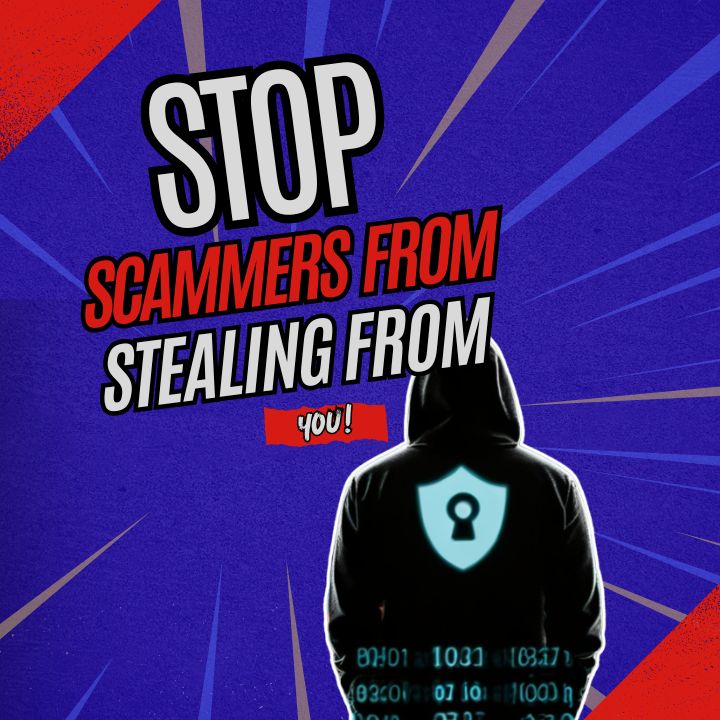
Scammers FAKE Calls Like This! (How to Stop Them)
Scammers are constantly trying to trick you—whether it’s gaining access to your computer, convincing you to send them money, or pretending to be someone you trust. But how can you protect yourself from these scams?
In this post, we’ll break down how scammers spoof phone numbers to make it seem like they’re calling from legitimate sources (even your bank!). We’ll also share practical ways to block these calls and avoid falling victim to their schemes.
How Scammers Fake Caller ID Numbers
Scammers and hackers use a technique called caller ID spoofing to manipulate the phone number that appears on your caller ID. They can make it seem like the call is coming from a trusted entity—such as your bank, a government agency, or even a local police department.
How Does Spoofing Work?
- Voice over IP (VoIP) Technology: Many scammers use Voice over Internet Protocol (VoIP) services, which allow calls to be made over the internet instead of traditional phone lines. Some providers let users input any number they want as the caller ID.
- Legitimate-Looking Numbers: Scammers can impersonate real organizations by spoofing their official phone numbers. For example, they might call you showing your bank’s actual customer service number—making the call seem legitimate.
- Constantly Changing Numbers: Even if you block one spoofed number, scammers can easily switch to another, making it nearly impossible to stop them just by blocking individual calls.
Real-World Scam Examples
- The "Bank Fraud" Scam
- You get a call that appears to be from your bank, warning about suspicious activity.
- The caller ID matches your bank’s real number, so you trust them.
- They ask for your account details to "verify" your identity—but they’re actually stealing your information.
- The "Grandparent Scam"
- A scammer spoofs your grandchild’s phone number and calls in a panic, claiming they’re in trouble and need money immediately.
- They beg you not to tell their parents and insist on wire transfers or gift cards.
- The "Jury Duty Scam"
- A caller claims to be from the sheriff’s office, saying you missed jury duty and must pay a fine to avoid arrest.
- They demand payment via gift cards, wire transfers, or even Bitcoin.
How to Protect Yourself from Spoofed Calls
1. Never Trust Caller ID Alone
Just because a call appears to come from a legitimate number doesn’t mean it’s real. Always verify by hanging up and calling the organization directly using a known, official number.
2. Use Call-Blocking Features
- iPhone Users: Enable "Silence Unknown Callers" (Settings > Phone) to send unrecognized numbers straight to voicemail.
- Android Users: Use built-in spam protection (Settings > Caller ID & Spam) or third-party apps like Truecaller.
3. Don’t Engage with Suspicious Callers
- If a caller pressures you to act immediately, it’s likely a scam.
- Never give out personal information, passwords, or payment details over the phone.
4. Report Scam Calls
- File a complaint with the FCC (www.fcc.gov/complaints).
- Report phishing attempts to the FTC (www.ftc.gov/complaint).
Final Thoughts: Stay Skeptical
Scammers rely on urgency and fear to trick people. The best defense? Slow down and verify. If something feels off, trust your instincts—hang up and check with the real organization before taking any action.
Have you encountered a phone scam? Share your experience in the comments below, and let’s help others stay safe!
Cybersecurity problems? You need A Faster PC.
Get Protected Today:
For IT support, managed services, patch management, and cybersecurity, contact A Faster PC:
📞 Call us: 772-878-5978.
🛡️ Download Our FREE Cybersecurity Report.
💻 Get tech support help today!
🌐 Sign Up for Our FREE 'Cyber Security Tip of the Week'
🔒 Need help securing your devices? You need A Faster PC! If you want to take your cybersecurity to the next level, call A Faster PC at 772-878-5978.



